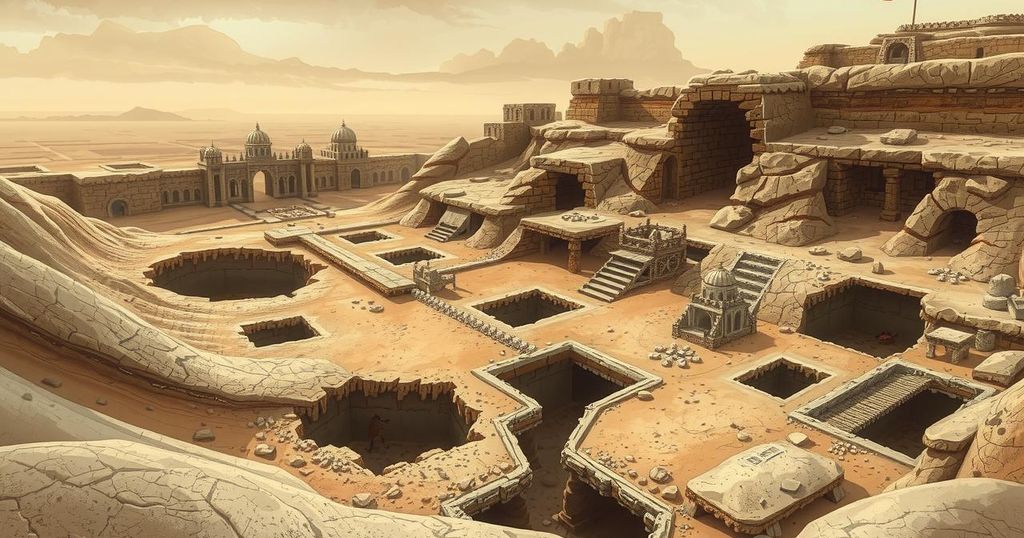Syria’s Treasure Hunting Fever and the Rise of Metal Detectors
- Post-Assad era sees metal detector sales skyrocketing in Syria.
- Shops are opening to meet the demand for treasure hunting equipment.
- Palmyra is covered in holes from treasure seekers searching for artifacts.
- High poverty levels post-war drive people to explore for ancient treasures.
- Amr Al-Azm highlights ISIS’s role in the rise of treasure hunting.
- The demand for antiquities in Europe and North America impacts looting.
Metal Detectors: A Booming Business in Syria
Rise of Metal Detector Sales Post-Assad’s Regime In the wake of the fall of Bashar al-Assad’s regime, Syria has seen a surprising boom in metal detector sales. A once-banned item due to its prospective military uses is now a hot commodity, with shops sprouting up all over the country. This trend signals an unprecedented treasure-hunting fever, rooted in the desire to uncover priceless artifacts amidst the ruins of a war-torn nation, creating new opportunities for local entrepreneurs while reflecting broader socio-economic issues.
Treasure Hunting Amidst War and Poverty
Desperation and Discovery in Ancient Palmyra The ancient city of Palmyra has become a focal point for desperate treasure hunters. As reported by prominent journalist William Christou, this historic site is now riddled with holes, the physical manifestations of a population eager to unearth long-buried relics. With impoverished conditions exacerbated by the ongoing civil conflict, many Syrians have turned to the search for ancient treasures, demonstrating the intersection between economic need and cultural heritage in this chaotic landscape.
The Fight Against Cultural Heritage Looting
Implications of Treasure Hunting For Archaeology However, this surge in treasure hunting raises larger issues regarding the looting and preservation of cultural heritage. Amr Al-Azm, a notable Syrian archaeologist, sheds light on how the rise of ISIS paved the way for this phenomenon, disrupting traditional norms and encouraging illicit market activity. He emphasizes the urgent need for consumers in Europe and North America to take responsibility and curb the demand, as it is essential for combating the illegal antiquities trade that threatens Syria’s rich history.
In summary, Syria’s post-war landscape is marked by a surge in metal detector sales driven by essential economic needs, leading to significant changes in how citizens engage with their heritage. Treasure hunting in sites like Palmyra highlights the ongoing struggle between survival and preserving history, revealing a complex relationship between poverty, culture, and conflict. Moreover, addressing the demand for looted antiquities in the global market will be crucial for protecting Syria’s invaluable archaeological sites.




Post Comment